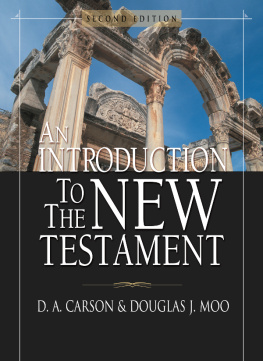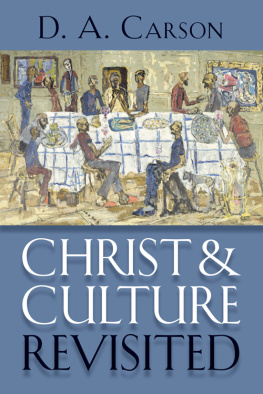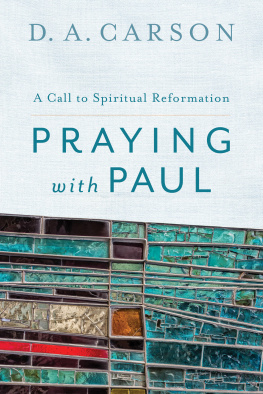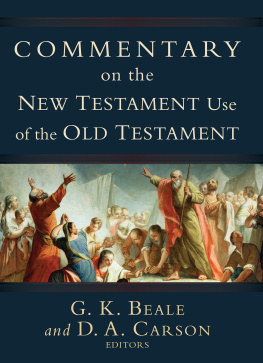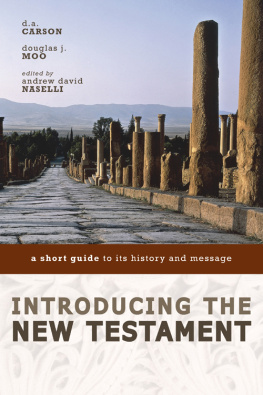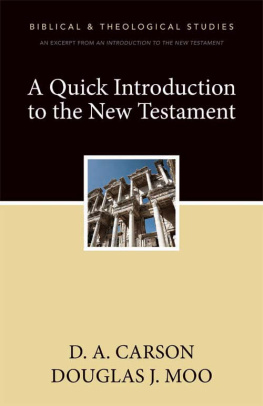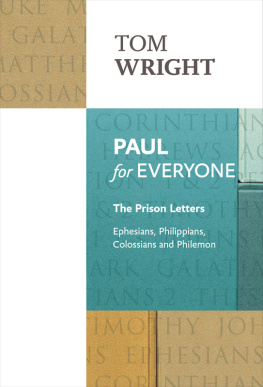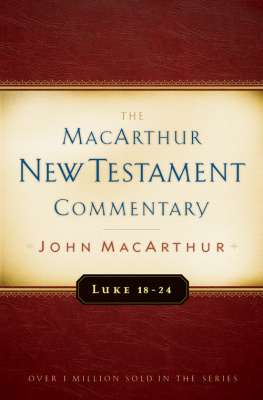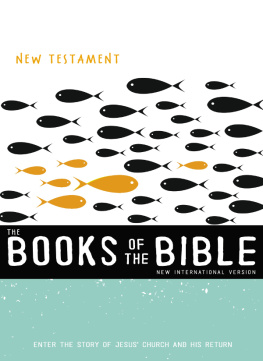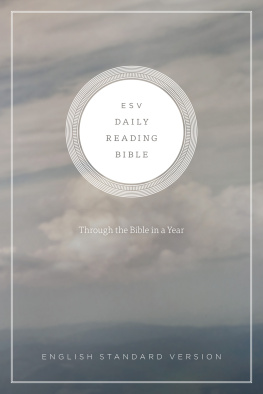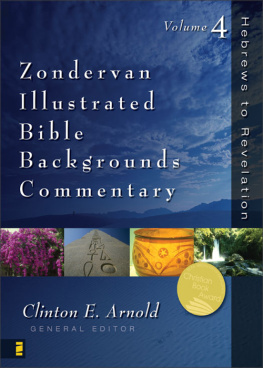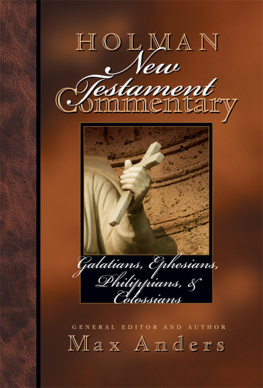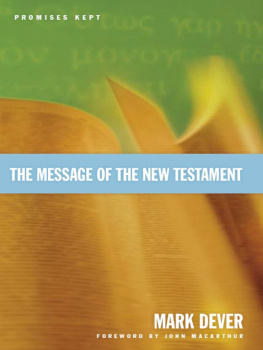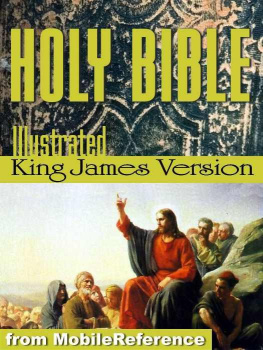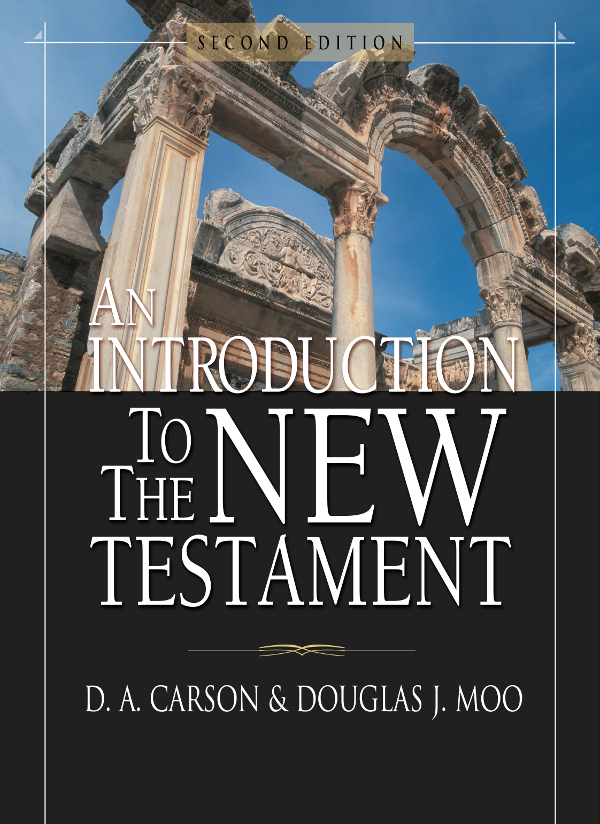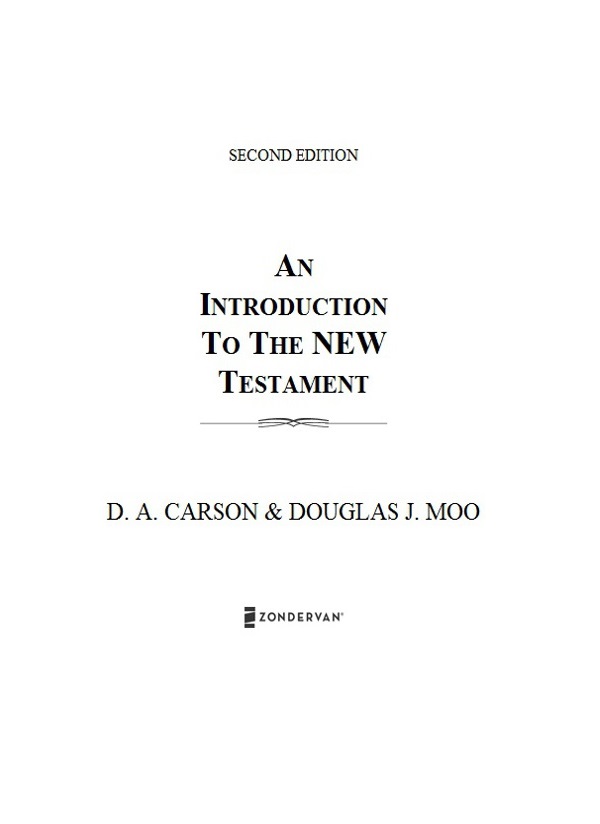This book is gratefully dedicated to Joy and Jenny
CONTENTS
The primary focus of this book is special introductionthat is, it treats historical questions dealing with authorship, date, sources, purpose, destination, and the like. Many recent books devote more space than we do to literary form, rhetorical criticism, and historical parallels. We do not minimize the importance of such topics, and we have introduced them where they directly bear on the subject at hand. However, in our experience, they are better given extended treatment in courses on exegesis, especially the exegesis of particular books. Moreover, we fear that too much focus on these topics at the expense of traditional questions of introduction tends to divorce the New Testament books from their historical settings and students from some important debates in the first centuries of the Christian church. This also means that we have often referred to primary sources. In debates over such questions as what Papias means by John the elder, we have tended to cite the passage and work through it, so that students may see for themselves what the turning points in the debate are (or should be!).
Although the emphasis of this book is on special introduction, we have included a brief outline or rsum of each New Testament document, sometimes providing a rationale for the choices we have made. In each case we have provided a brief account of current studies on the book and have indicated something of the theological contribution that each New Testament document makes to the canon. Our ultimate concern is that new generations of theological students will gain a better grasp of the Word of God.
We have tried to write with the first-and second-year student of seminaries and theological colleges in mind. Doubtless in most instances the material will be supplemented by lectures. Some teachers will want to use the material in some order other than that presented here (e.g., by assigning chapters on Matthew, Mark, and Luke before assigning the chapter on the Synoptic Gospels). Bibliographies are primarily in English, but a small number of works in German, French, and other modern languages appear. These bibliographies are meant to be brief enough not to be daunting, and comprehensive enough not to be reductionistic. Lecturers may provide guidance as to what in these lists is especially useful in particular contexts.
Not least important, we have restricted the length of this New Testament introduction so that it can be used as a textbook. One or two well-known introductions are so long that only relatively short parts of them are assigned to students. This means that it is possible to graduate from a seminary without ever having read a single New Testament introduction right through. Although the brevity of this volume precludes detailed discussion of many topics we would have liked to pursue, we hope the constraints we have chosen will enhance its value for classroom use.
Confessionally, the two authors are evangelicals. Doubtless that heritage biases our readings somewhat, but (we hope) no more than other New Testament scholars are influenced by their heritage. If we have tried to eschew obscurantism, we have nevertheless sometimes raised possibilities and questions that are too quickly turned aside in some introductions. We have tried to engage a representative sampling of the vast amount of current literature, sometimes following traditional paths and at other times suggesting a fresh way of looking at an issue. Where the evidence seems entirely inconclusive to us, we have left questions open.
Some readers will want to know how this book relates to the earlier one (1992) with the same title but written by three of usCarson, Moo, and Leon Morris. In many ways this is an update of that earlier volume. Nevertheless, several important changes have been introduced: (1) Because advancing years have meant that Leon Morris was unable to contribute to this volume, we decided, with his concurrence, that it would be simpler if the two of us divided his chapters between us. As a result, each of us has written about half of this volume. We have updated and revised our own work and have largely revised or rewritten the chapters we inherited from Leon Morris. (2) The chapter on Paul has been expanded to include a brief analysis of the current debates on the new perspective. (3) A preliminary chapter has been added to provide a brief history to explain how Christians have moved from the reading of the first hand-written documents that make up the New Testament to contemporary study of the New Testament. That kind of survey is rather daunting, but our aim has been to help the student locate current trends within a stream of historical discussion and debate. (4) The section on pseudonymity in the chapter on the Pastoral Epistles has been removed from that chapter and significantly expanded. It has been added to an expanded section on Pauls letters to constitute a new chapter, New Testament Letters. (5) We have included in each chapter a more substantial summary of the content of the biblical books and brief interaction, where relevant, with some of the more recent literary and social-science approaches to New Testament interpretation.
These changes have added length to this volume, but we hope that the work has retained enough compactness that it will still be usefulindeed, more usefulto new generations of students.
Each of us has offered suggestions and critiques of the work of the other. We have also tried to reduce stylistic and other differences to a minimum. Although in a few instances, references in the text betray the identity of the author, the work has been very much a team effort. Readers who love to compare editions will discover where, in a few instances, we have changed our minds on some matters.
We are profoundly grateful to Jonathan Davis and Michael Thate for compiling the indexes.
Soli Deo gloria.
D. A. Carson and Douglas J. Moo
| AB | Anchor Bible |
| ABD | Anchor Bible Dictionary |
| Achtemeier/Green/Thompson |
Paul J. Achtemeier, Joel B. Green, and Marianne Meye
Thompson, Introducing the New Testament: Its Literature
and Theology (Grand Rapids: Eerdmans, 2001) |
| AGJU | Arbeiten zur Geschichte des antiken Judentums und des Urchristentums |
| AGSU | Arbeiten zur Geschichte des Sptjudentums und Urchristentums |
| AJT | American Journal of Theology |
| ALGHJ | Arbeiten zur Literatur und Geschichte des hellenistischen Judentums |
| AnBib | Analecta Biblica |
| ANRW | Aufstieg und Niedergang der rmischen Welt |
| Ant | Josephus, Antiquities of the Jews |
| ANTC | Abingdon New Testament Commentaries |
| ASNU | Acta Seminarii Neotestamentici Upsaliensis |
| ATR | Anglican Theological Review |
| AusBibRev | Australian Biblical Review |
| AUSS | Andrews University Seminary Studies |
| BAGD | Walter Bauer, William F. Arndt, F. Wilbur Gingrich, and Frederick W. Danker, A Greek-English Lexicon of the New Testament and Other Early Christian Literature, |

